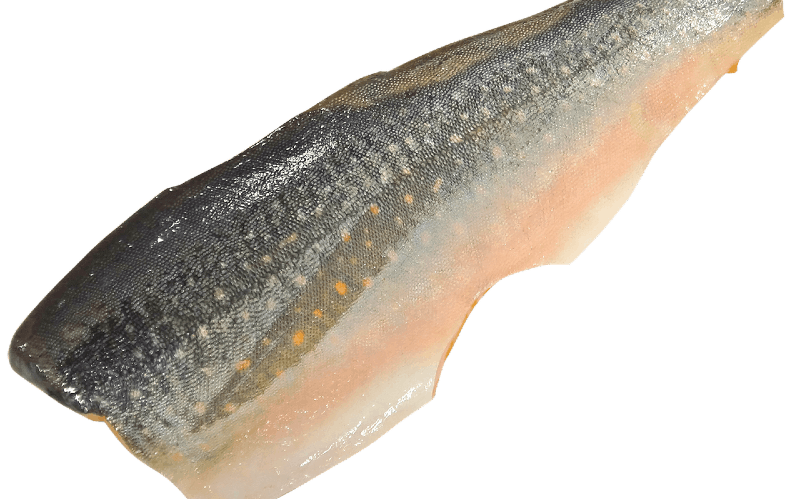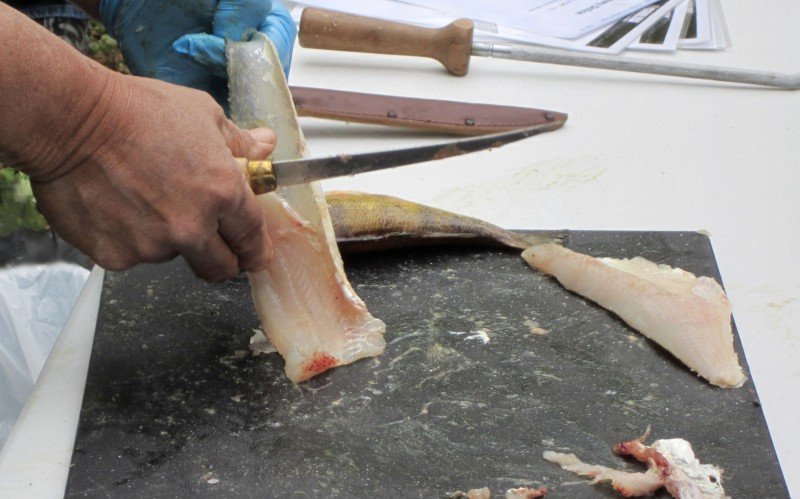How To Clean Small Trout
Boat Safe is a community supported site. We may earn comission from links on this page, but we have confidence in all recommended products.
One of the best parts about trout fishing is getting to enjoy what you catch. If you plan to eat what you catch that you need to know how to clean trout. There are two ways to approach cleaning the trout. You can clean your trout streamside or you can clean your trout at home. There are benefits to either one of these choices.
Most anglers these days let trout go when they catch them. This keeps the sport viable and fun for everyone. The trout live another day and get to reproduce and increase the population. You still get the fun of catching the trout, and the challenge of hooking them. Still, every so often, it's hard to resist eating what you catch.
The benefit to cleaning trout when you catch it is the freshness. The biggest selling point for any fish is freshness. But no store can ever match a trout you just pulled from a lake or stream. This will be the best fish you ever eat, most likely. For many anglers, this is the reason they love to fish.
Streamside Cleaning

Cleaning trout immediately after catching them ensures the freshest meat possible. Trout begin to decompose quickly out of water and in the warmth. This decomposition comes from the internal organs and digestive juices. These parts of any animal begin to decompose almost immediately upon death. Luckily, cleaning trout is not that difficult once you get the hang of it. You can pluck them from the water and get them cleaned quickly and easily. From there it can go right into the pan. It's always best to get cooking soon after cleaning fish.
To start, you'll need some tools handy. Pack these items with your fishing gear ahead of time if you know you plan to be cleaning the fish:
- A sharp filet knife
- Paper towels
- A frying pan. Cast iron is often best
- Olive Oil or butter
- Seasoning like salt, pepper, and lemon slices
- Utensils like plates, knives, and forks
Make sure you have a clean and level area to clean the fish. This is just a matter of safety. If you don't have a table handy, the back of your car may work. The process of cleaning a trout is smooth and efficient once you get the hang of it.
Step 1: Using a sharp fillet knife, slit the trout from the anus up through its belly. Slice in a straight line. Only use the tip of the knife, deep enough to cut the skin. You don't want to cut too deeply. Avoid the internal organs as much as possible. If you cut into anything you risk making a big mess. It won't ruin the fish, but it will make it a harder clean up. Take your time if you are unsure. Safety is always your main concern. Second is keeping your cuts neat and clean.
Step 2: Slice until you reach the fish's gills. You want to stop before you hit the jawline. Trout have a V-shaped point under the jaw. If you hit that you have gone too far.
Step 3: You can insert your finger in the trout's mouth. Push down and extend that V-shaped section. Use the blade to slice the thin segments of flesh on either side of the V..
Step 4: Hold the trout's lower jaw between your thumb and forefinger. Grip it firmly and pull down, tearing the V-shaped segment free. This should remove the gills and entrails. With some practice, this will come free in one fluid movement.
Step 5: Inside the fish you will see a dark red sac. You can find it along the fish's spine. It's covered in a thin membrane. This is the blood vein or kidney. You can use the knife to slice into the membrane. If you're more old school you can use your finger.
Step 6: Scrape the fish's spine clean. Rinse the fish clean inside. If you don't have any water, use a paper towel. The kidney and the fluids in it can make you very sick if you don't clean it properly.
Step 7: Remove the head and fins if you plan to cook the fish right away. If it's going to be stored, you can leave the head on to prevent spoilage.
Step 8: At this point you can store the fish in the fridge or freezer or proceed to cooking it. If you want to cook it you can cook it as is, or filet it. If you want to store it, seal it in a bag as air tight.
How to Skin and Filet a Trout

Unlike some fish, you don't need to skin a trout to cook it. Many people prefer to fry a rainbow trout with skin off. It adds crispy texture and more flavor. Still, you can skin the trout if you'd like. The process takes a delicate hand and some patience.
Step 1: If your trout still has the head, insert your knife behind the gill line. If the head has been removed, just do it where the gills would have been.
Step 2: Cut in until you reach the backbone. This will require a small bit of pressure, but not too much. You don't want to go through the bone. You'll be able to feel when you touch it through the blade of the knife.
Step 3: Use the fish's backbone as a guide and cut towards the tail. Your knife should be sharp enough to do this in a single slice. Stop when you reach the tail.
Step 4: Flip the fish over and repeat the same cut on the other side. If the head is still on, make sure you have a firm grip on it to do this. Otherwise you'll need to be careful gripping the end of the filet.
Step 5: Open me inside of the fish. You can now clear out the bones from the inside. Run the knife along the inside to remove the large rib bones. You should be able to remove the bulk of the rib cage in one pull. You may need to pluck out the smaller ones later with your fingers or tweezers.
Step 6: Put the filet skin side down. Grip the fish by the tail. Slide the filet knife into the flesh just above the tail. Hold the blade at an angle and slide it down the length of the filet. The flesh should act as a guide. Repeat on the other side and you should have two perfect filets.
Preparing Your Filets
Many anglers will tell you the best time to cook fish is immediately after catching it. This is literally the freshest trout you will ever eat. A simple cast iron pan over an open flame is all you need as a heat source.
At home there are dozens of ways you can season trout. Once you've cleaned the trout streamside, you may want to keep it simple. A bag with some flour and salt and pepper works great to toss the filets in. Something like seasoning salt or garlic powder could work just as well.
Put a bit of butter or olive oil in your pan once you've got it hot. Lay in your seasoned fish fillets. You only need to cook them for about 4 to 6 minutes per side. You'll know the meat is done when it starts to flake easily. From there you can simply serve it up with a little more salt and pepper. Maybe some lemon slices, or whatever you feel tastes best.
How To Clean Small Trout
Source: https://www.boatsafe.com/how-to-clean-trout/
Posted by: mcginnisanaturis.blogspot.com

0 Response to "How To Clean Small Trout"
Post a Comment